
How many legislative suggestion collection stations are there in China?
How many legislative proposals come out of here each year?
How to solve the problems in the community?
What kind of help and benefit can the people get from here?
In early summer, a group of foreign visitors arrived at the legislative suggestion collection station in Nanmofang Township, Chaoyang District, Beijing. They listened and observed attentively, and raised the above questions from time to time. They were interested in understanding how Chinese residents participated in the legislation and governance of the country, and how the deputies of the National People's Congress (NPC) went into residential areas to listen to public opinions and answer questions.
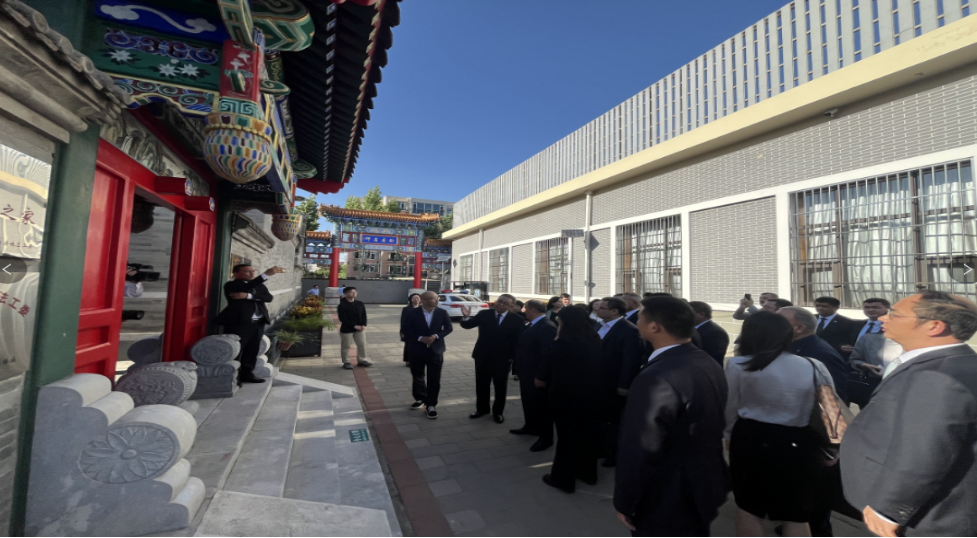
I see the people’s status as masters of the country
On the afternoon of May 11th, a delegation of 20 members from Movement of Entrepreneurs and Businessmen – Liberal Democratic Party of Uzbekistan (UzLiDeP) visited the legislative suggestion collection station in Nanmofang Township, Chaoyang District, Beijing. They aimed to understand the purpose of such institutions and their role in practice. Officials from the Chaoyang District People's Congress and the local working committee explained the work model of "people—legislative suggestion collection station—legislative body". Through examples, they illustrated how the legislative suggestion collection station acts as a direct conduit for public participation in national legislation and social governance, collecting public suggestions, addressing concerns, and ensuring that legislation has a broad, transparent, concrete and trustworthy public foundation.
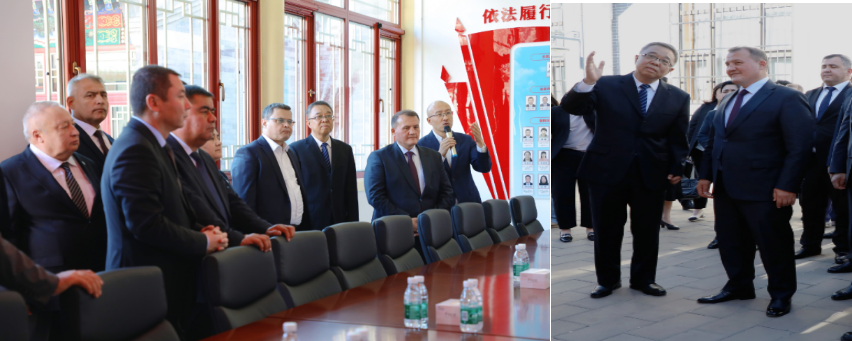
Upon hearing that the Legislative Affairs Commission of the NPC Standing Committee has established 45 national-level and over 6,500 provincial and municipal legislative suggestion collection stations, Nasim Alimov, the head of the Center for Political Education of the UzLiDeP, said, I see that whole-process people's democracy is a great creation and achievement of the CPC. The stations serve as a bridge, allowing citizens to voice their opinions directly and enabling the ruling party and legislators to listen to the people's voices firsthand. This unfiltered communication ensures that the public can more actively participate in the national legislative process and social governance, and that their concerns are promptly and properly addressed. This is the true essence of whole-process people's democracy.
As the delegation entered the Deputy Home, their attention was quickly drawn to the wealth of detailed information displayed on the walls. The working rules of the NPC, the deputy work manuals, and other key documents were openly displayed. The attendance system and performance records of the 72 municipal, district, and township deputies who receive voters were clear and transparent. The locations of 11 grassroots stations and 20 enterprise representative stations were clearly marked. The delegation members paused to study the information, frequently nodding in approval.
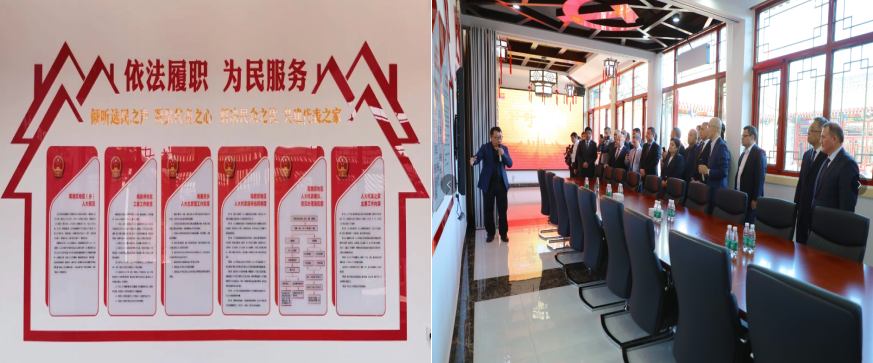
Seeing the revisions to laws such as the "Patriotic Education Law (Draft)" and the "Financial Stability Law (Draft)" displayed on the table, and learning that out of 131 suggestions collected locally by the current NPC Standing Committee, seven were adopted to varying degrees, the delegation applauded for the achievement.
During their conversations with local community staff and resident representatives, the delegation members discovered that the busy deputies must remain available 24/7 to respond promptly to public concerns. The Deputy Home operates with a principle that "doors are always open, deputies
are always present, and issues are always addressed" with representatives "returning the home monthly, entering stations quarterly, and reporting annually". Arzikul Sherov from Kashkadarya region remarked that the brilliant high-level design, complete institutional framework, diligent execution, and smooth feedback channels together form an effective whole-process people's democracy, where the people truly hold the power.
I feel that this is the true meaning of putting people first
After the visit, the delegation had an enthusiastic and lively discussion with NPC deputies, local government officials, and community representatives. The delegation leader, Aktam Akhmadovich Khaitov, Chairman of UzLiDeP and Deputy Speaker of the Legislative Chamber of the Oliy Majlis, said that this visit has given him a clearer picture of China's grassroots democracy. The legislative suggestion collection stations of the NPC are a direct way for people to participate in legislative activities and an important means of implementing whole-process people's democracy. Their mission here is to study the advanced practices in the CPC's political development. The world is diverse, and there is no single democratic model that fits all. China's whole-process people's democracy has made significant contributions to enriching and developing human's political civilization. They have gained many insights and will study these practices carefully to apply them in their future work.
While watching documentaries on the special legislation inquiry on women's rights protection and the Nanmofang legislative suggestion collection station, the delegation was deeply engaged, frequently exchanging thoughtful comments. Khaitov was amazed, noting that he sees many remarkable Chinese women playing crucial and positive roles in the legislative system and grassroots management. Being in China, they are more convinced that China's remarkable achievements are due to its great people and the CPC's excellent governance principles, which benefit all its citizens equally.
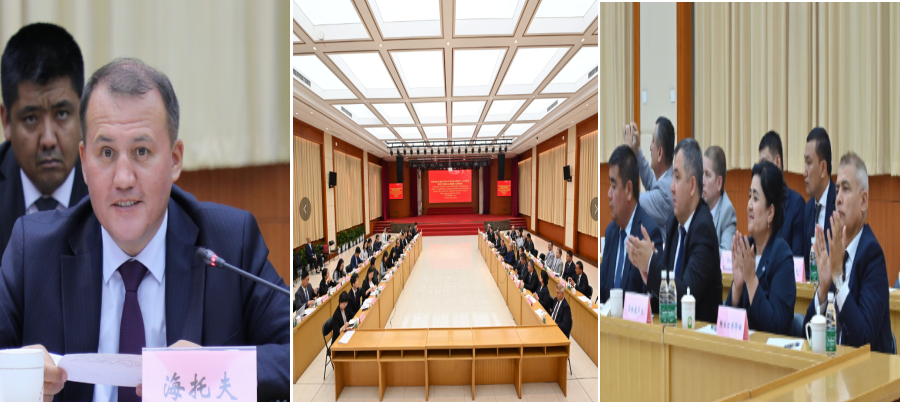
Ilhom Botirov from Samarqand region was particularly impressed with the community's environmental improvements and asked, "How do you achieve such clean streets, tidy communities, and organized waste bins?" Other members inquired about traffic regulations, children's education, and elderly care. Upon hearing, "The people's country is governed by the people; the people's government serves the people," the delegation's deputy leader, Bakhtiyor Yakubov, remarked that Uzbekistan also has many such stations. The delegation members come from 12 administrative regions in Uzbekistan, and today's visit and discussions provided them with clear, practical examples, offering them valuable insights and inspiration. This truly exemplifies people-first governance. They hoped to enhance the exchanges with the CPC on such governance concepts and practices.
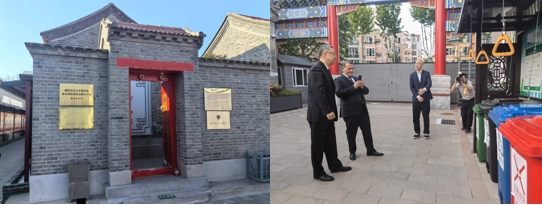
The delegation members expressed that their visit to the station in Nanmofang Township offers them with insights of China's democratic political system integrating democratic elections, consultations, decision-making, management, and oversight, ensuring that all aspects of national and social life hear the people's voices. Whole-process people's democracy addresses major national development issues, complex public management challenges, and everyday concerns, characterized by continuity in time, completeness in content, consistency in function, and broad and sustained public participation, resonating with and inspiring the delegation.
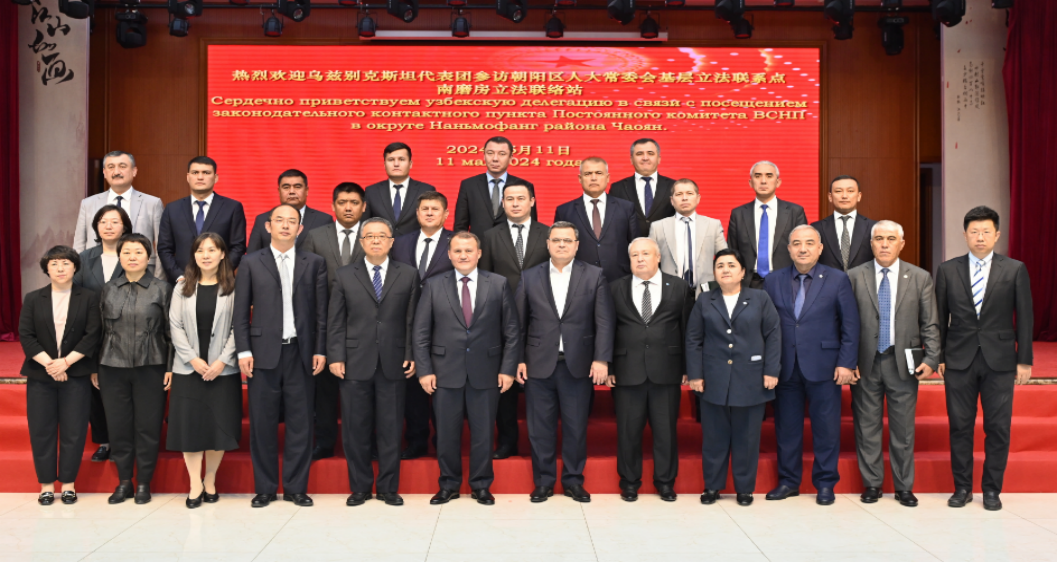
As the visit concluded, Khaitov said that China's experience shows that a democracy rooted in the people and aligned with national traditions is reliable and effective. It is believed that on the path to building a modern nation, the CPC's adherence to and development of whole-process people's democracy will surely ensure the people’s status as masters of the country. This mechanism embodies General Secretary Xi Jinping's people-centered philosophy of development in practice. It is the democracy that covers all aspects of the democratic process and all sectors of society. It is a true democracy that works. China's approach provides a solution to the global puzzle of democracy—whole-process people's democracy.





















